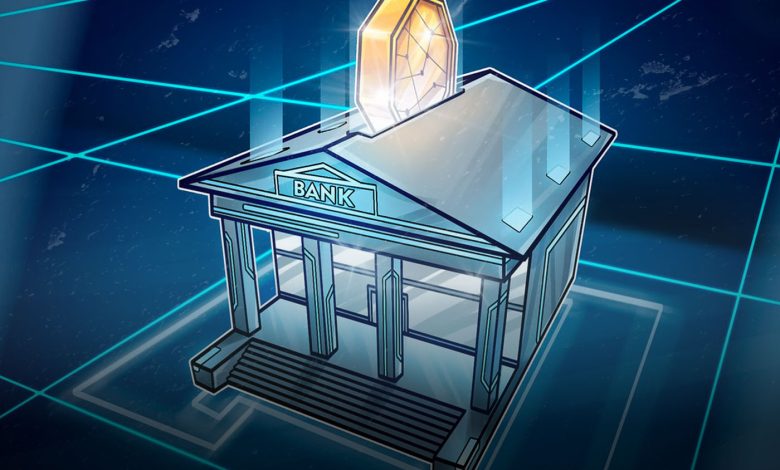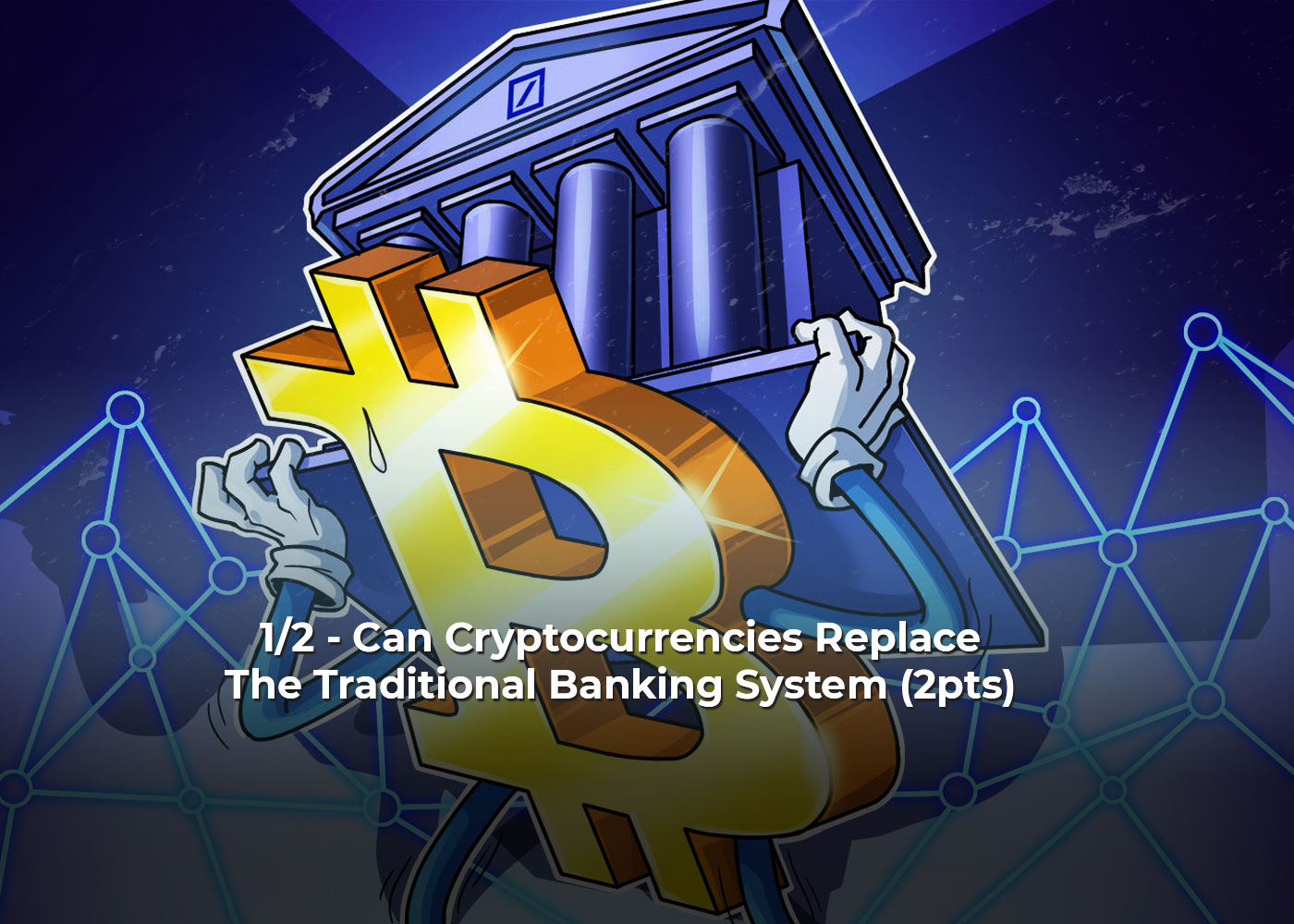Can Cryptocurrencies Replace The Traditional Banking System
Are you an avid crypto enthusiast? Then, surely you've heard of the phrase “be your own bank” or the concept of "bankless."

Are you an avid crypto enthusiast? Then, surely you’ve heard of the phrase “be your own bank” or the concept of “bankless.” The core idea is that cryptocurrencies enable individuals to gain more command over their financial future than traditional finance. But, just how far can one go with utilizing crypto in managing their finances?
A lot! With the advances in cryptocurrency and numerous decentralized finance (DeFi) protocols, FinTech companies are assembling a digital infrastructure that can serve as an ever more competent replacement to traditional banks. Moreover, with these traditional banking institutions providing such low-interest rates, crypto is undeniably becoming the better option.
Cryptocurrencies are revolutionizing the concept of money, bringing unprecedented opportunities for direct deposits, debit cards, decentralized savings/lending, and cross-border payments. This is your chance to jump in on one of these tremendous opportunities! Here’s what you can do:
Money Transfer Between Cryptocurrency Platforms and Your Bank Accounts Is Much Easier
An increasing number of cryptocurrency and fintech companies — from Square to Paypal to Coinbase — are enabling the ability to direct deposit funds onto their platforms, making it easier to convert or directly receive traditional payments in crypto. Some companies have begun rolling out the ability to receive direct deposits into your account — creating the possibility of more seamless crypto trades, spending via a Visa debit card tied to your account, earning crypto rewards, and more. You can choose to deposit your checks in either crypto or US dollars — and deposit as much or as little of your paycheck as you want. All for zero fees.
Some traditional banks are even beginning to integrate crypto directly into user accounts. For example, in September 2021, with the help of Coinbase, Vast Bank became the “first federally chartered bank in the U.S. to offer the ability to buy, sell, and custody cryptocurrencies – directly from a checking account – all under one roof.”
Cards That Allow Direct Shopping with Cryptocurrencies May Become Common
Once you have some crypto, you’ll probably find yourself asking the next question: how do you spend it?
Visa has made significant progress “connecting crypto and blockchain networks to its trusted, global payment network.” Visa currently has over 50 crypto wallet partners that can connect to over 70 million merchants worldwide. In the first half of 2021, Visa reported processing over $1 billion worth of cryptocurrency payments.
Mastercard is also embracing crypto. In July 2021, Bloomberg reported that Mastercard is looking to make it easier for consumers to buy, spend, and hold cryptocurrencies. And merchants on its network will soon be able to accept crypto.
Coinbase customers can sign up for Coinbase Card — a debit card that allows Coinbase customers to seamlessly spend crypto held in their account at any merchant in Visa’s vast global network while earning rewards for each purchase. There is also a crypto card issued with a Binance-Mastercard partnership.

Staking Opportunities Like a Deposit Account
Many cryptocurrencies now use a “Proof of Stake” consensus mechanism — which is a way for their decentralized networks to ensure that all transactions are verified and secured without a bank or payment processor in the middle.
With certain cryptocurrencies, you can earn rewards for simply contributing to the network’s security — by “locking” some of your holdings into a staking pool for a certain timeframe. This is an excellent option if you were planning to hold onto the crypto for a longer period — instead of having it sit idle, you can put it to work for you.
The Opportunity to Convert Your Fiat Money Directly to Stablecoins
One potential downside of staking rewards is that they’re paid in the native cryptocurrency, which can be volatile. But you can earn dollar-denominated rewards simply by buying and holding stablecoins like Dai and USD Coin (USDC).
DeFi is Also Advantageous in Protecting Your Assets
With traditional savings accounts providing near-zero interest, it’s only natural that the value of your money diminishes over time. If you’re seeking a higher yield and are willing to carry the risks associated with new financial technology, then DeFi protocols may be an ideal solution for you.
Unlock greater financial rewards by participating in Decentralized Finance (DeFi) protocols. By supplying your crypto assets into a liquidity pool, you can earn higher yields than what traditional banking offers. As of September 2021, DeFi users were offered significant benefits with as much as 11% returns for lending out stablecoins such as USDC on Aave and Compound – two popular DeFi platforms.
If you want to get involved with DeFi apps, a self-custody cryptocurrency wallet such as Coinbase Wallet or Metamask is an absolute must. Not only are these wallets places for you to securely store your assets, but they also allow you to transfer them quickly and effortlessly between parties. But beyond that, crypto wallets open up the door for exploration into unique applications involving cryptocurrencies – from NFT markets to games and, even more so, the world of decentralized finance (DeFi).
Money Transfers Between Countries Are Also Very Easy
In September 2021, El Salvador created a groundbreaking milestone by becoming the initial nation to declare Bitcoin as a legal tender. This momentous decision was likely driven by their aim of minimizing exorbitant remittance payments from family and friends overseas. The most noteworthy quality of cryptocurrency is its unrestricted nature; hence it’s no surprise that this game-changing move has been made! On October 15th, Chivo – the nation’s official Bitcoin app – had managed to process over $3 million worth of remittances. This is a crucial development for citizens in developing countries and their foreign family members; near-instantaneous and cost-efficient cross-border payments can be incredibly life-changing. Envision having access to a global monetary system with just your smartphone – you’ll have access to borrowing and lending services that are completely decentralized!
As Chainalysis reports, developing countries such as Vietnam, India, and Pakistan are on the cutting edge of cryptocurrency utilization. To facilitate this trend further, in October, Facebook – now Meta- announced a worldwide initiative called Novi with Coinbase and Paxos to enable users across the U.S. and Guatemala to securely transfer cryptocurrencies instantly without incurring fees -making it an ideal payment solution for those residing in economically disadvantaged nations who often have few alternatives at their disposal when remitting funds abroad.
So What Does the Future Show for Cryptocurrency?
Two paths are elucidating themselves. Cryptocurrencies are progressively integrating with traditional payment channels and banking systems, while decentralized protocols emerge as more feasible alternatives.




